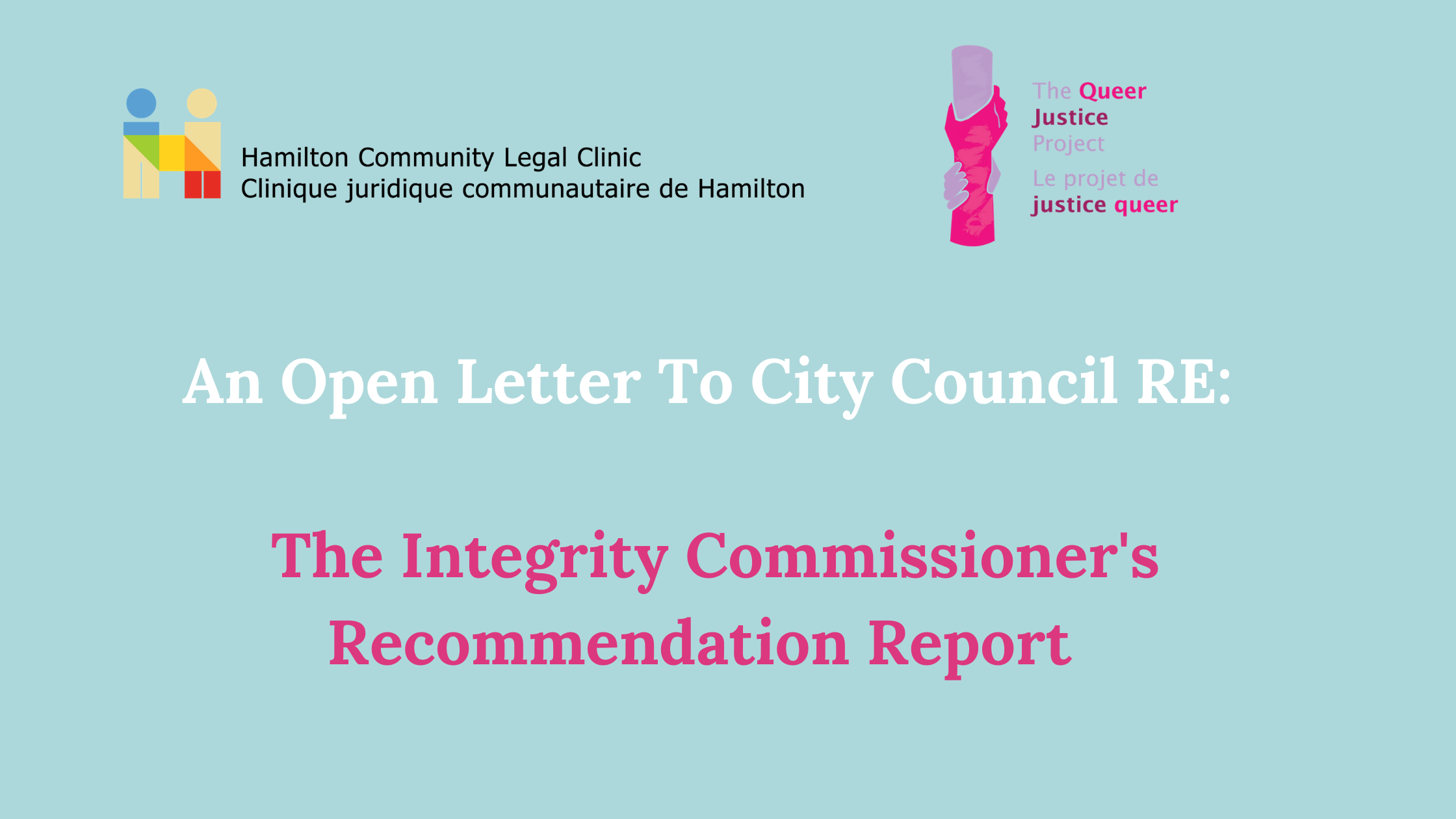
The Hamilton Community Legal Clinic and its Queer Justice Project express our significant concerns about the sequence of actions and decisions taken by Council regarding the Integrity Commissioner’s recommendation report on the complaint filed against Cameron Kroetsch. Please read our full open letter here:
2020-10-02 Open Ltr to Council re Integrity Commissioner Report
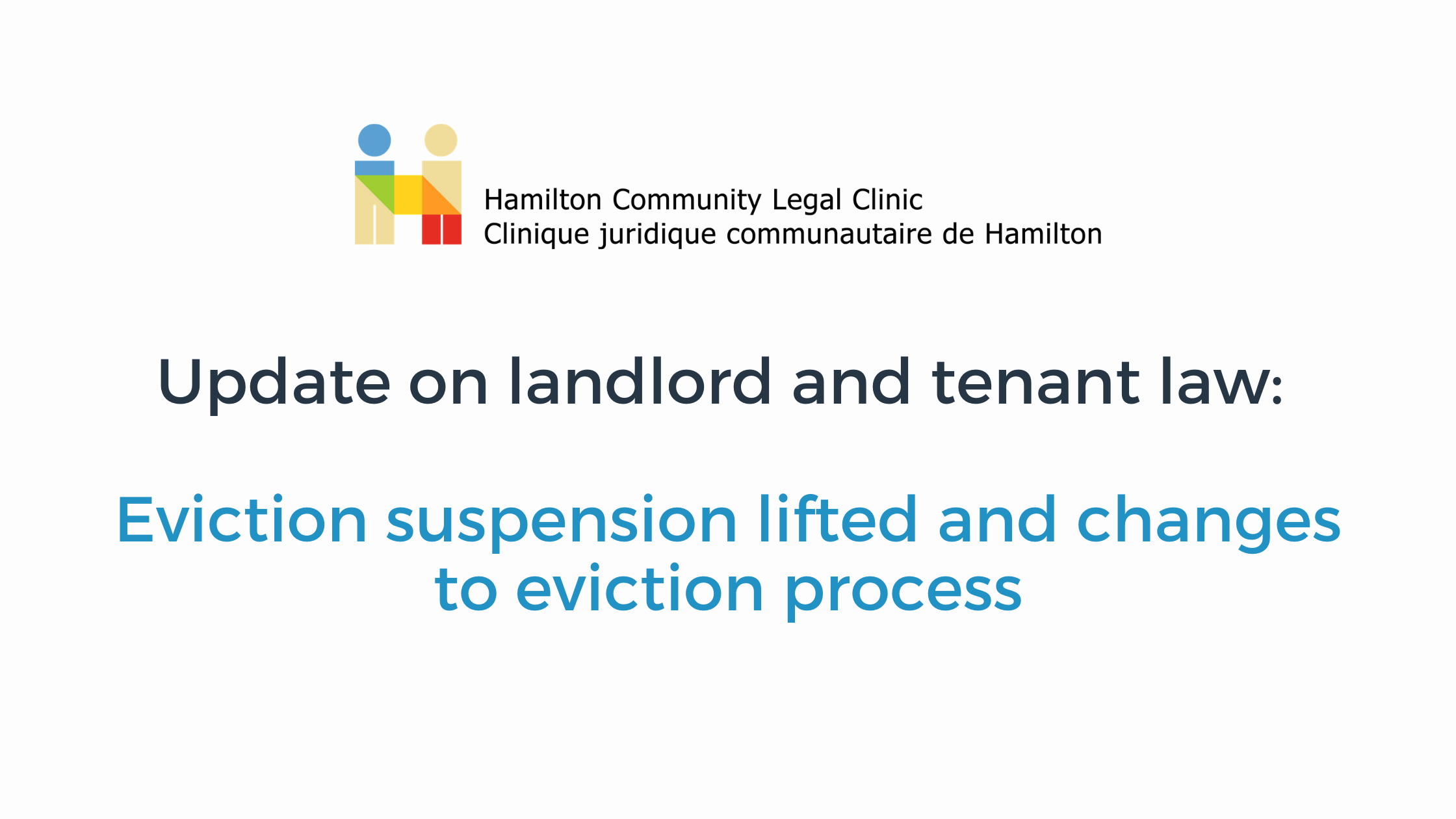
The COVID-19 pandemic eviction ban is being lifted in Ontario on August 4, 2020. This means that evictions can once again take place in Ontario. There remains a process for evictions, but for most evictions that process is now different due to recent changes to the Residential Tenancies Act. Some of the changes related to evictions and other things are as follows:
For more details about the changes to the Residential Tenancies Act, see this article produced by the Advocacy Centre for Tenants Ontario.
While the changes to the law are being challenged in court, the changes are currently in effect. We will provide an update when we have more information about the court challenge.
If you live in the Hamilton area and have any tenancy-related issues (e.g., you owe rent, your unit needs repairs), please contact the Hamilton Community Legal Clinic at 905-527-4572 or hclc.cjch@gmail.com
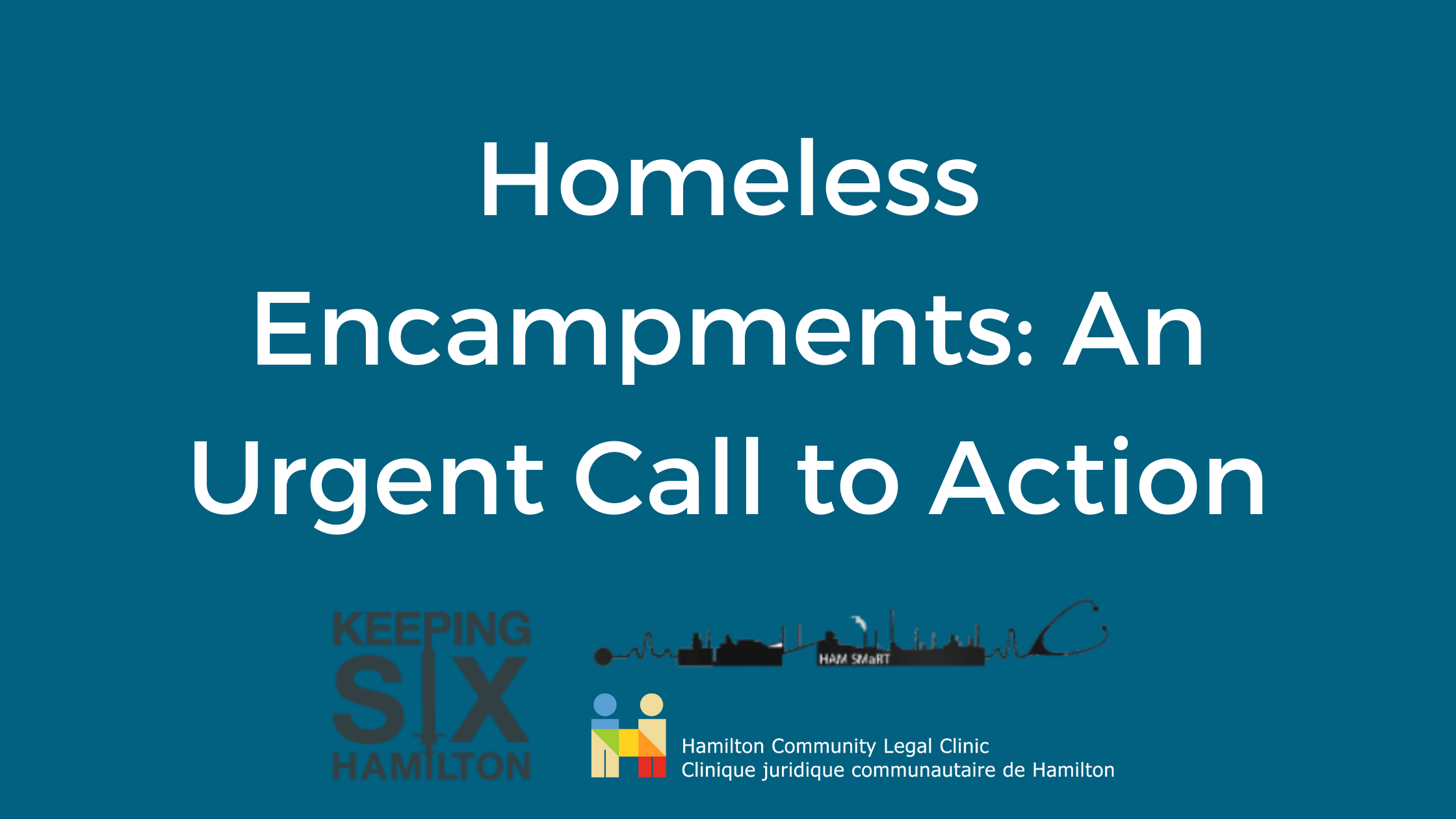
![]()

Hamilton city staff have informed HAMSMaRT and Keeping Six of their plan to dismantle the encampments at the First Ontario Centre and the Ferguson Street encampment on July 31, 2020.
Since the beginning of the pandemic, both organizations partnered with the Hamilton Community Legal Clinic and with Wade Poziomka, a human rights lawyer at Ross & McBride and called on the city to stop dismantling encampments unless it was able to provide encampment residents with access to safe indoor spaces and interim to permanent housing with the appropriate supports.
This order to dismantle the encampments comes as a surprise to a coalition of social service and outreach workers, physicians, lawyers and community allies.
We need your help!
Please call or write to your councillor today asking that:
Dismantling homeless encampments will cause harm to encampment residents and this harm is heightened by the current pandemic. We need you to call on your local city councillor to take a holistic and reasoned approach to encampments. Please contact your councillor today!
In your emails, be sure to cc the following organizations:
The Hamilton Community Legal Clinic – hclc.cjch@gmail.com
Keeping Six – info@keepingsix.org
HAMSMaRT – info@hamsmart.ca
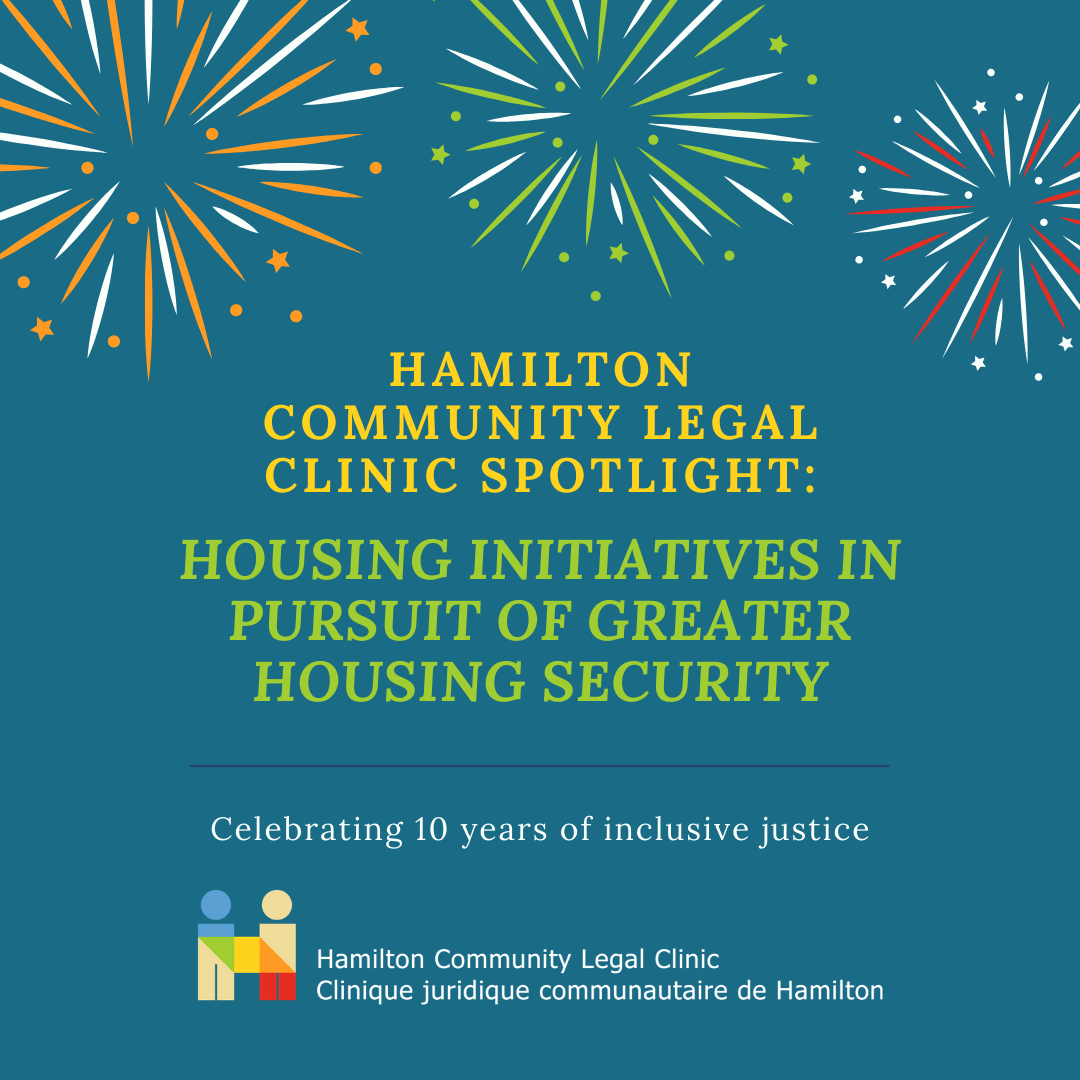
We are in the midst of the worst affordable housing crisis in the country’s history. Wages and social assistance rates are too low. Rent is too high. Here in Hamilton this pressure was becoming unbearable: 45% of Hamilton tenants were spending more than 30% of their income on rent, and 20% were spending more than 50%. In 2018, Hamilton saw the highest one-year average rent increase in all of Canada, at 24%.
The combination of a lack of rent control, increased profitability of the market and municipal “revitalization” policies has led to gentrification causing mass displacement of tenants; forcing thousands of people in Hamilton, living in precarity, to survive through the toughest times, and make every last dollar stretch for them and their families.
Landlords want to push long-term tenants out of the buildings so they can raise rents. HCLC supports apartment tenants to organize building committees which take up the concerns of all residents. Through the [Dis]placement Project and Tools for Tenants initiatives, HCLC provide(s)(d) training on housing law to tenants, tenant associations, community leaders, emerging community leaders, and service providers. These initiatives are partnerships between legal and community organizations designed to improve the capacity of frontline workers so they can provide basic legal information and referrals to their clients and to empower tenants to self-advocate thereby increasing access to justice and grassroots mobilization in response to the need for greater housing security.
HCLC zealously responds to the roots of systemic displacement by routinely advocating for policy reform at the municipal level. We successfully advocated for changes to some of the City of Hamilton’s development grant programs that unintentionally encouraged landlords to displace longstanding tenants. Additionally our advocacy resulted in the creation of the Tenant Defence Fund Pilot Project, a fund that tenants can access to cover the cost of hiring legal counsel to defend against applications for Above Guideline Rent Increases.
Unfortunately tenants have also been threatened by unlawful evictions by Hamilton Police Services (HPS), a service that does not have the authority to evict tenants protected by the Residential Tenancies Act. HCLC successfully represented two tenants in their claim of negligence causing damage for their unlawful eviction by HPS. Their settlements included financial compensation for their personal damages and require the HPS to amend their operational manual to better reflect housing law, reinforcing that they do not have the authority to evict tenants covered by the Residential Tenancies Act.
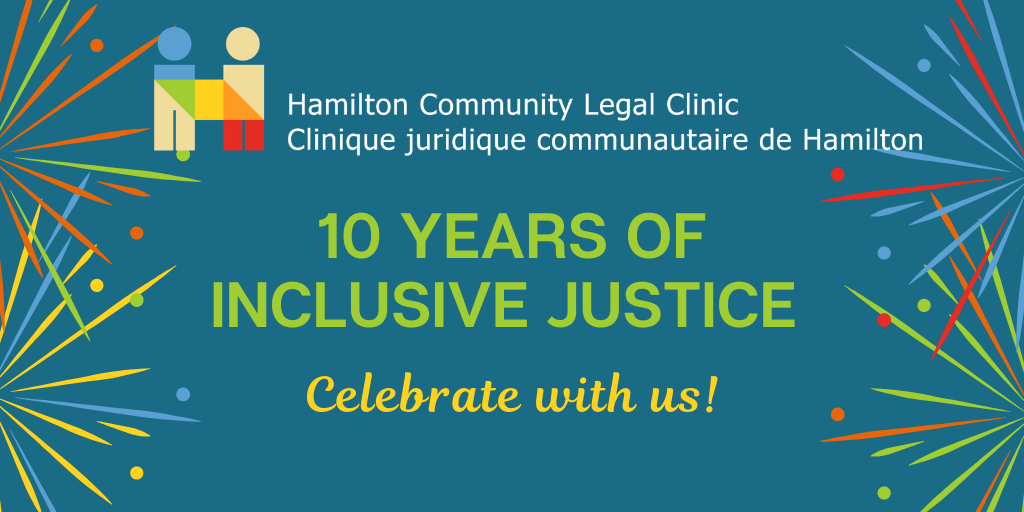
On April 1st, 2010, Hamilton Community Legal Clinic began operations after amalgamating Dundurn Community Legal Services, Hamilton Mountain Legal & Community Services and McQuesten Community Legal Services. It’s hard to believe that it’s been 10 years serving Hamilton as one clinic! We achieve positive changes and strengthen our community by promoting inclusive justice for vulnerable Hamilton residents. Our services aim to reach populations that have been disproportionately ignored and mistreated by our legal system.
Today, we are proud to say we have built relationships with many of these communities to deliver services and advocate for systemic change. We have done this by working within and with these communities. Although “celebrations” aren’t appropriate or indeed possible in these difficult times, we do wish to celebrate our commitment and actions to achieve inclusive justice. We also look forward to when we can celebrate together, by breaking bread and honouring each other and our stories and will do so as soon as it is safe to gather.
We are available to help by phone 905-527-4572 and online www.hamiltonjustice.ca/contact